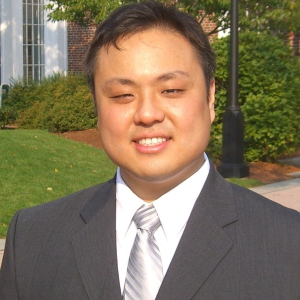Jeff Goldsmith Speaker Biography
One of America’s Premier Healthcare Futurists
Jeff Goldsmith stands as a prominent healthcare futurist, currently serving as the President of Health Futures, Inc. For over a decade, concluding in 1990, Goldsmith shared his expertise as a lecturer at the University of Chicago’s Graduate School of Business. During this time, he focused on health services management and policy. Furthermore, his insights were sought after at esteemed institutions. These included the Wharton School of Finance, Johns Hopkins, Washington University, and the University of California at Berkeley. Goldsmith’s wide-ranging interests encompass crucial areas of health innovation. These areas include biotechnology, health policy, international health systems, and the evolving landscape of health services. As a seasoned healthcare industry expert, Goldsmith offers invaluable perspectives on the future of healthcare. His deep understanding of medical trends and healthcare forecasting makes him a sought-after voice in the field.
Career in Healthcare
From 2016 to 2019, Jeff Goldsmith held the position of National Advisor for Strategy at Navigant Healthcare. This diversified consulting firm has since become part of Guidehouse. Prior to this, from 1982 to 1994, Goldsmith served as the National Advisor for Healthcare at Ernst and Young. In this role, he provided strategic consultation to numerous healthcare organizations. These included health systems, health plans, and companies specializing in supply and technology. Before 1982, Goldsmith played a key role at the University of Chicago Medical Center. Specifically, he was the Director of Planning and Government Affairs. Moreover, he served as Special Assistant to the Dean of the Pritzker School of Medicine. Earlier in his career, from 1973 to 1975, Goldsmith contributed his skills to the Office of the Governor in Illinois. Initially, he worked as a fiscal and policy analyst. Subsequently, he became the Special Assistant to the State Budget Director. His extensive career reflects a deep commitment to shaping the future of medicine and health management.
Education
Jeff Goldsmith achieved his doctorate in Sociology from the University of Chicago in 1973. His doctoral studies centered on complex organizations, the sociology of professions, and the political dynamics of developing nations. Earlier, in 1970, Goldsmith graduated from Reed College. His undergraduate studies focused on psychology and classics. Recognizing his academic potential, he received a Woodrow Wilson Fellowship in 1971 for graduate study. This strong educational foundation has underpinned his insightful contributions as a healthcare thought leader and medical futurologist.
Awards and Accolades
Jeff Goldsmith’s contributions to the field have been widely recognized. In 1990, he received the Corning Award for excellence in health planning from the American Hospital Association’s Society for Healthcare Planning. Additionally, the American College of Healthcare Executives honored him with the Dean Conley Award for best healthcare article on three occasions: 1985, 1990, and 1995. Furthermore, Goldsmith has shared his insights through numerous publications. He has authored six print articles and six online articles for the Harvard Business Review. Moreover, he has served as a valuable source for articles on medical technology and health services in prominent publications. These include the Wall Street Journal, the New York Times, Business Week, Time, and STAT. Currently, Jeff Goldsmith is an esteemed member of the editorial board of Health Affairs.
Beyond his professional life, Goldsmith is a father of two sons and a daughter. In his leisure time, he enjoys snow skiing and has a collection of Native American art and artifacts. He is married to Karen Walker, a florist in Charlottesville and owner of Hedge Fine Blooms. Her business specializes in fresh flowers and innovative floral design for various events and businesses. Originally from Portland, Oregon, Jeff Goldsmith currently resides in Charlottesville, Virginia.
Jeff Goldsmith Speaking Topics
What Makes a Health System?
Health care organizations have grown steadily larger and more complex over the past thirty years. Most of them call themselves “health systems”. But are they really systems and have patients and those who pay for care benefited from this growth and complexity? Why has “health system” operating performance deteriorated sharply since the historic Affordable Care Act coverage expansion? How can health systems make changes in their operations and management that patients notice? What does it mean to be a health system?
2040: A Healthcare Odyssey
In 1986, in Hospitals’, Jeff Goldsmith looked ahead fifty years to the US healthcare system in 2036. In 2016, Jeff revisited these forecasts, noting both accurate and inaccurate predictions, and looked ahead yet again to the health system in twenty years. In 2037: A Healthcare Odyssey, Jeff examines the digital health revolution he foresaw in his 1986 piece, and how it is likely to affect care. He also looks at the concluding chapter of the baby boomer’s saga, as well as promising new progress in the neurosciences and produces a fresh forecast for the US health system in twenty years.
The Future of Medical Practice: What Does it Look Like?
Physicians have vigorously defended the institution of private medical practice for more than a century. Yet, in the past five years, medical practice appears to be consolidating under hospital and, to a lesser degree, health plan control. The uncertainties introduced by health reform, economic pressures from the sustained US recession and the impending retirement of the large baby-boom era cohort of practicing physicians all have contributed to a sense that private medical practice is doomed. Is there a future for private medical practice? This lecture discusses the turnaround strategy for physician practice in the post-health reform era, as well as the role that hospitals, health plans, private equity and technology firms can play in reforming and strengthening medical practice.
Organizing for Risk: How hospitals and physicians can collaborate both to contain cost and improve quality
Health reform is changing both how and how much the care system is paid. This lecture reviews the history of both hospital and physician efforts both to sponsor and to contract with health plans and discusses how they can become more accountable for both the cost and value of what they do. It will also review what’s happened to the idea of “accountable care organizations” (ACO’s) and what some viable alternatives to the strategy might be.
Health Reform: What can the US Learn from Other Countries The United States spends almost double per capita what other countries spend on healthcare, yet produces inferior health outcomes
Why does health care cost so much more in the United States than anywhere else in the world? How do other countries finance and organize health care? What can we learn from their experience that will help the United States reshape its health system? What can other countries learn from the United States' experience?
Opiate Crisis: Tip of a Population Health Iceberg
In 2016, more than sixty thousand Americans died of drug overdoses, 42 thousand from opioids. Drug death is the SuperStorm Sandy of public health threats, likely to claim more victims than the AIDS Epidemic. Yet it is the most visible manifestation of a more troubling trend-declining American life expectancy. In both 2015 and 2016, American life expectancy declined, the first two-year decline since the early 1960s. During the same two years, the US spent nearly $7 trillion on healthcare. What are the underlying drivers of this deeply troubling trend. and what can policymakers and the care system do about it?
No Books Found
Jeff Goldsmith Videos
Jeff Goldsmith Speaker Testimonials
Jeff Goldsmith has been and continues to be our go-to person for peering into the future and helping our members prepare for it. No one has his track record of accurately assessing what is on the horizon and giving hospitals and health systems the tools they need to thrive in any new environment.
- Stephen Michaud | President, Maine Hospital Association
I’ve repeatedly relied on Jeff to share his deep understanding and prophetic insights into the future of healthcare in my leadership groups and investment entities. He is an expert navigator helping to decipher the increasingly complex healthcare sector landscape.
- Bill Frist, MD | Former Majority Leader, US Senate Founder, Frist/Cressey Ventures





